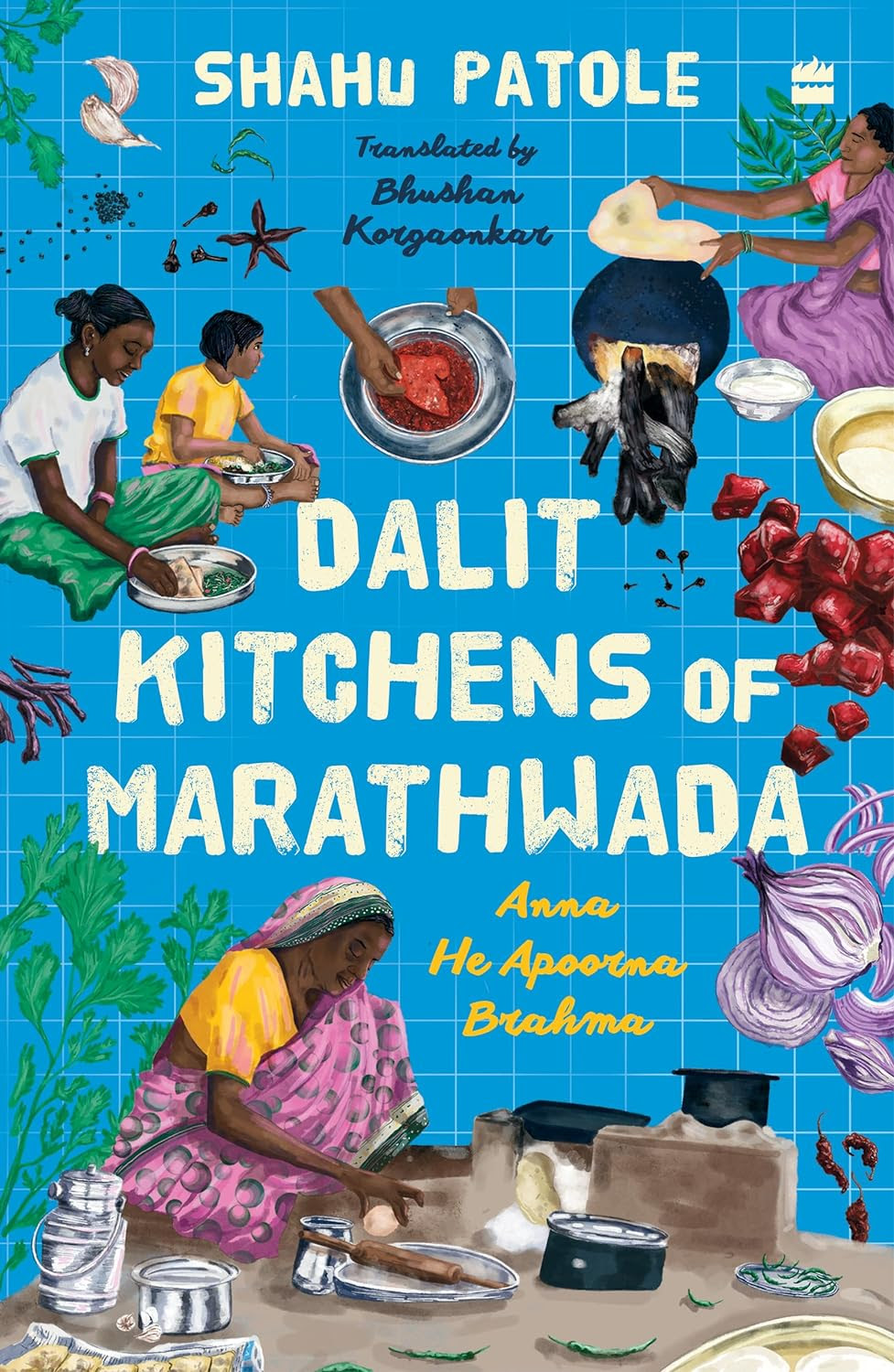Dalit Kitchens of Marathwada
1. Shahu Patole, a distinguished Marathi-language writer and retired government officer, has a master’s in economics and journalism. He was selected for the Indian Information Service by the UPSC in 1991 and has held positions in the Press Information Bureau, Defence PRO, Directorate of Field Publicity, All India Radio and Mumbai Doordarshan (news sections). Shahu passionately addresses caste religion, food, politicsm sex and social issues in his books, articles and on social media. He divides his time between Osmanabad and Aurangabad in Maharashtra. 2. Bhushan Korgaonkar is a multilingual writer, director theatre producer and translator. Celebrated for his engaging stories on Storytel and popular songs on YouTube, Bhushan is also a featured contributor to Loksatta and Mint Lounge, sharing tales of his culinary adventures. He has engaged with traditional Lavani artistes and written the book Sangeet Bari on their lives. As the founder of B Spot Productions, Bhushan directs award-winning theatre productions and aims to foster community storytelling, sensory exploration and dialogue on taboo topics, while also offering dance and writing workshops, food trails and culture trails. ... Read more Read less
This is the food my parents ate and their parents ate … It is an acquired taste, especially one acquired through centuries of discrimination.’
A landmark publication in Marathi, Shahu Patole’s book Anna He Apoorna Brahma was the first ever to document Dalit food history through the culinary practices of two Maharashtrian communities–Mahar and Mang. Fashioned as a memoir with recipes, it explores the politics of maintaining social divisions through food along with a commentary on caste-based discrimination–what food is sattvic (pure) or rajasic (fit for a king), what is tamasic (sinful) and why.
Now translated as Dalit Kitchens of Marathwada, this book presents the poor man’s patchwork plate, one devoid of oil, ghee and milk, and comprising foods not known to savarna dictionaries. It also examines Hindu scriptures that prescribed what each varna should eat–and questions the idea that one becomes what one eats. From humble fare to festive feasts, the recipes carefully woven into the narrative show you the transformative power of food in connecting communities and preserving cultural identity.











